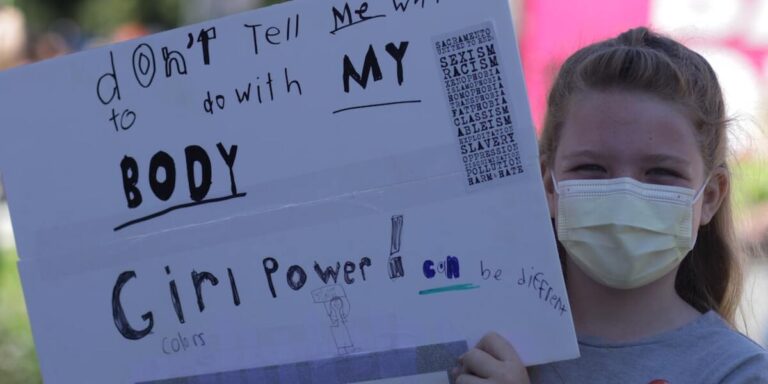How are assets distributed without a will in Wisconsin?
When it comes to understanding Wisconsin inheritance laws, the importance of having a will in place cannot be overstated. Without one, assets may not necessarily go where you want them to and can become subject to state law regarding distribution upon death. This blog post is designed to provide an overview of how assets are distributed without a will in Wisconsin and what steps individuals should take if they find themselves in this situation.
Inheritance laws vary from state-to-state but all states have certain procedures that must be followed when distributing property after someone passes away with no valid will or estate plan. In Wisconsin specifically, probate court has jurisdiction over any real estate owned by the deceased as well as personal property valued at more than $50,000 which includes bank accounts and investments held solely by the decedent (not jointly). A knowledgeable probate lawyer can help guide families through these processes so that their loved ones’ wishes are honored while also helping navigate complex legal matters related to asset distribution during times of grief or confusion following a passing.
Understanding Wisconsin Inheritance Laws
Inheritance laws in Wisconsin are complex and ever-changing. It is important to understand the current state of inheritance law if you wish to ensure that your estate plan will be executed according to your wishes after death. When it comes time for a family member or loved one’s assets, property, debts and other possessions to be distributed upon their passing, understanding how these items should legally pass on can make all the difference in protecting those left behind from any unnecessary financial burden or legal disputes over what was rightfully theirs.
Wisconsin has several unique aspects when it comes to inheritance laws which include: rules regarding intestate succession (when there is no valid Will), spousal rights as well as probate court proceedings involving minors and creditors claims against an estate’s assets. A knowledgeable probate lawyer can help individuals navigate through this process by providing advice about applicable state statutes governing estates; helping draft necessary documents such as Wills; ensuring proper execution of final arrangements like asset transfers; representing clients during hearings before courts concerning contested matters within an estate; negotiating with creditors involved in debt collection actions taken against deceased persons’ estates among many others tasks related to administering a decedent’s affairs efficiently under existing local regulations .
What Happens to Assets Without a Will in Wisconsin?
When a person dies without having made a will in Wisconsin, their assets are distributed according to the state’s intestacy laws. These laws dictate who is eligible to receive an inheritance and how much they can expect. This process is known as “intestate succession” or “inheritance by operation of law.” In general, if someone passes away with no surviving spouse but has children, then those children would be entitled to inherit any property that was owned solely by the deceased parent at death. If there are both parents still living when one of them passes away and neither have left behind wills outlining specific instructions for distribution of assets after death, then the surviving partner may take possession over all jointly-owned real estate and other tangible items such as vehicles; however any personal possessions belonging only to the decedent must pass through probate court before being awarded out accordingly based on applicable intestacy statutes in Wisconsin.
In cases where multiple family members need assistance understanding complex issues surrounding inherited estates due to lack of clear documentation from passed loved ones regarding wishes for asset division upon passing , it’s wise seek legal advice from experienced probate attorneys familiar with relevant state regulations . A knowledgeable lawyer can provide guidance on topics like rights related tax implications associated with inheriting property along with options available heirs looking settle matters quickly while minimizing potential conflicts between beneficiaries down road .
Navigating the Probate Process with an Attorney’s Help
When it comes to navigating the probate process in Wisconsin, having an experienced attorney by your side can make all the difference. Probate is a complex legal procedure that involves settling a deceased person’s estate and distributing their assets according to state inheritance laws. It requires careful attention to detail as well as familiarity with relevant statutes such as those governing wills, trusts, estates and taxes. An experienced lawyer who specializes in these areas of law will be able to provide invaluable guidance throughout this difficult time for you or your family members involved in administering the estate.
A knowledgeable probate lawyer will have experience dealing with both testacy (when there is a valid last will) and intestacy cases (when there isn’t). They understand how different types of property are handled under Wisconsin’s inheritance laws including real estate holdings, personal belongings like jewelry or artwork, financial accounts like bank savings/checking accounts or stocks/bonds held outside of retirement plans; life insurance policies; digital assets stored online etc.. In addition they can help ensure that any debts owed by the decedent are paid off properly from available funds so that heirs don’t become liable for them after distribution has taken place. Furthermore they may also be able assist executors/administrators through filing court documents on behalf of beneficiaries when necessary if disputes arise over asset division among other things related to carrying out final wishes laid out within last testamentary instruments left behind prior death occurred . Ultimately working closely alongside qualified attorneys during this period could save considerable amount stress while providing peace mind knowing matters being managed appropriately accordance applicable regulations set forth each respective jurisdiction where individual resided before passing away
How Are Assets Distributed After Death in WI?
Wisconsin inheritance laws determine how assets are distributed after death. These laws, which vary from state to state, outline the rights of heirs and beneficiaries when it comes to receiving property or money that belonged to a deceased person. In Wisconsin, intestate succession is used in cases where there was no will left behind by the decedent at their time of passing. This means that if an individual dies without leaving a valid last will and testament then his/her estate shall be divided among relatives according to statutory rules set forth under Chapter 852 of the Wisconsin Statutes.
When someone passes away with or without a will they may need help navigating through probate court proceedings so that all necessary paperwork can be completed correctly and efficiently; this is why having access to experienced legal counsel such as an attorney who specializes in WI Inheritance Laws can prove invaluable during these difficult times for families dealing with loss. A qualified lawyer can provide guidance on issues like distributing personal belongings, paying debts owed by the decedent’s estate, filing tax returns related thereto (if applicable), ensuring proper distribution of remaining funds per statutes governing intestacy succession -and more- thereby providing peace-of-mind knowing everything has been handled properly throughout each step along process until its conclusion
Frequently Asked Question
-
How are assets distributed without a will in Wisconsin?
-
How does inheritance work in Wisconsin?
-
How much are probate fees in Wisconsin?
-
Can I leave one child out of my will?
-
Do you need an attorney to settle an estate in Wisconsin?
-
Who gets the property if entire family dies?
-
Who inherits in Wisconsin?
-
What is a legal next of kin order in Wisconsin?
-
Who Cannot be beneficiaries?
-
Does wife get everything when husband dies in Wisconsin?
Intestacy laws in Wisconsin will apply to assets that you don’t have a will. The court will be guided by these laws as to how assets should be distributed among surviving spouses and their descendants.
If gifts or inheritances are given to only one spouse, they become separate property in Wisconsin. Wisconsin’s marital property laws treat inherited assets as separate property. However, separate property may become property of the community if it’s commingled. Financially, inheritances could be life-changing.
You can expect to pay between 4 and 5% of an estate’s value in Wisconsin. Due to the complexity and time involved in the settlement of the estate, attorney fees may amount to half or more.
Your solicitor will need to know details about your family situation when you create your will. Your solicitor will need to know why you want to exempt a family member or child from your will. This should be done in writing, either in a letter or note.
Wisconsin law does not mandate that you hire an attorney for informal estate administration. However, you can seek advice from an attorney anytime during the process.
The Agnates or Cognates receive equal share of property if there are no Class I or II heirs. The Government creates rights and declares the property Escheat if the decedent holder dies without any heirs according to the listed classes.
Wisconsin Intestate Succession laws Descendants includes children, grandchildren and great-grandchildren as well as subsequent generations. If the spouse is not able to survive, the spouse or descendants would inherit all of the probate assets.
In Wisconsin, the next of kin are usually: The spouse/domestic partner who is surviving. Children. Parents.
Yes. Only those who are not eligible to receive donations according to Art. 739. The person who is unable to make any donations cannot name them beneficiaries of life insurance policies.
If you are not married, your spouse will inherit the entire community and any separate property.
Conclusion
In conclusion, understanding Wisconsin inheritance laws is essential for anyone looking to distribute assets without a will. It’s important to do your research when selecting a probate lawyer that specializes in this area of law and make sure they are experienced with the specific state regulations. Here at our website, we provide trusted links and reviews so you can find the best legal representation available for your needs. With these resources, you can rest assured knowing that all aspects of distributing assets according to Wisconsin inheritance laws have been taken care of properly!







